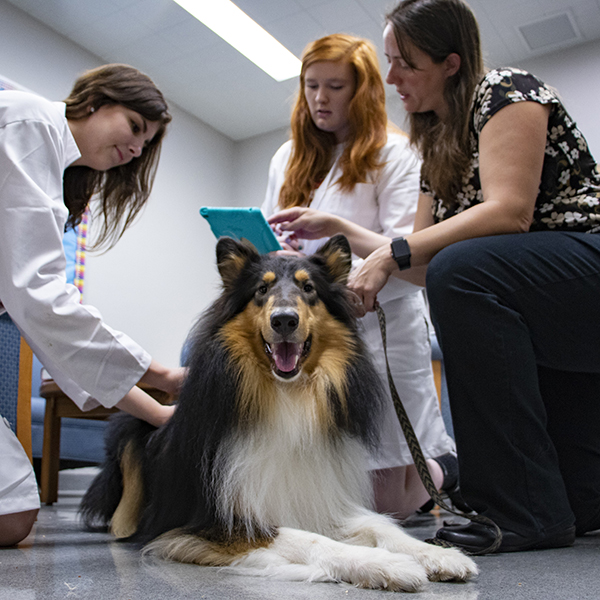The intersection of AI and social justice is increasingly vital as we navigate the rapid advancements in AI technology. Scholars like Ruha Benjamin emphasize that the future of AI should be inherently tied to the principles of equity and human rights. Despite the promise of progress, these technologies often perpetuate systemic inequalities, highlighting the importance of a conscious approach to their development. As Benjamin suggests, it is crucial to challenge the narratives surrounding AI and envision solutions that prioritize the well-being of marginalized communities. By fostering inclusive dialogues around AI and social justice, we can work towards ensuring that technology serves as a tool for liberation rather than oppression.
Delving into the relationship between artificial intelligence and societal equity, it’s clear that these advancements come with complex implications for our communities. Renowned sociologist Ruha Benjamin argues for a reevaluation of how we approach AI innovations, advocating for a framework that intertwines social equity and human dignity. As we grapple with the potential of AI systems, we must consider their ethical ramifications and the risk of exacerbating existing disparities. This critical examination calls for a vision where technology acts as a catalyst for justice rather than a vessel for inequality. Ultimately, reimagining our technological landscape alongside social values can lead us toward a more just and equitable society.
Reimagining Human Futures in the Age of AI
Ruha Benjamin emphasizes the importance of envisioning a future where AI technology serves human needs and principles of social justice, rather than perpetuating existing inequalities. In her Tanner Lectures, she notes that the visions created by tech elites often prioritize profit and power over collective welfare. This misalignment highlights a crucial need for diverse voices to participate in the AI discourse, inspiring a collective reimagination of our societal structures and technological innovations.
By inviting people from various backgrounds to the table, Benjamin argues that we can challenge the prevailing narratives that favor efficiency-driven solutions while neglecting the values of equity and dignity for all. A reimagined future of AI would not be confined to the interests of billionaires, but instead, would actively consider the implications of technology on marginalized populations, ensuring that advancements enhance human rights and promote community well-being.
AI and Social Justice: A Cautionary Perspective
Ruha Benjamin calls attention to the dangers of blindly trusting AI technologies framed as solutions for social issues. She presents evidence that these technologies can exacerbate systemic injustices, pointing to instances like biased facial recognition systems that harm vulnerable communities. This correlation urges us to critically assess who holds the power in technology development, as those in charge often lack the insight or inclination to prioritize social justice.
As Benjamin warns, viewing AI as a morally neutral entity fails to address the societal biases embedded within algorithms. The implication that decisions made by AI are impartial can further entrench disparities, making it imperative to incorporate humanitarian values into AI discourse. For AI to truly contribute to social justice, we must advocate for frameworks that celebrate diversity and inclusivity in both the creation and implementation of these technologies.
The Role of Creativity and Imagination in Shaping AI Futures
In her speeches, Benjamin reminds us of the critical role creativity and imagination play in shaping the future of AI. Rather than merely refining current systems to be ‘less harmful,’ she calls for a bold reevaluation of how we conceive these technologies. By fostering an environment where inquiry through the arts and humanities is valued, we can produce innovative solutions that genuinely reflect the complexity of human experiences.
Benjamin argues that the future of AI should not only consist of technological advancements but also of holistic approaches to problem-solving that include artistic expression and critical thought. This could lead to a world where public goods are prioritized, and notions of community, solidarity, and creativity inform the ethical deployment of AI technologies.
Challenging the Narrative of AI Efficiency
The prevailing notion that AI is solely about efficiency and progress often clouds its potential negative impacts, as articulated by Ruha Benjamin. By focusing excessively on the capability of AI technologies, we may overlook the socio-political contexts that contribute to their harm. Benjamin’s critique encourages us to look beyond the allure of efficiency and instead question the societal structures that enable harmful practices.
To truly advance society with AI, it is crucial to recognize that efficiency should not come at the cost of equity. Benjamin invites us to scrutinize who defines what is efficient and to consider alternative paradigms that prioritize communal well-being over mere output metrics. By adopting a critical stance, we can begin to dismantle the harmful narratives surrounding AI that align too closely with the interests of a privileged few.
The Hypocrisy of Technological Innovations
Benjamin’s talks highlight a striking hypocrisy in the narrative surrounding technological innovations like AI and interplanetary colonization. While billionaires are celebrated for their grand aspirations, essential public goods—such as affordable housing and accessible public transport—are sidelined as impractical. This juxtaposition serves to illustrate the disconnect between technological advancement and the basic human needs of a significant portion of the world’s population.
By bringing attention to this hypocrisy, Benjamin advocates for a more equitable distribution of resources and opportunities, emphasizing that society’s true strengths lie in uplifting all its members. The future of innovation should not rest solely on spectacular extremes; rather, it should focus on attaining practical, meaningful improvements that ensure human dignity across socioeconomic spectrums.
Understanding Human Needs Beyond Algorithms
Benjamin’s assertion that algorithms can be devoid of social and historical depth calls for a deeper understanding of human needs in the development of AI technologies. The so-called efficiency of AI should not overshadow the complexities inherent in human experiences. By emphasizing the necessity of social context, she argues that we cannot merely rely on computational outputs to guide our ethical decisions.
Instead, we must integrate narratives that reflect the lived experiences of diverse populations into technological development. By grounding AI in human realities rather than abstract algorithms, we can create tools that are not only efficient but also respectful and mindful of the people they affect, ultimately promoting a more just society.
AI Technology and Its Ethical Implications
Ruha Benjamin critiques the assumption that AI technology can operate in a morally neutral space, advocating for a discussion about its ethical implications. The reliance on algorithms in decision-making processes often overlooks how deeply embedded biases can influence outcomes, disproportionately affecting marginalized communities. Framing these technologies as ‘objective’ masks the critical need for ethical scrutiny.
To promote a more equitable application of AI, it is essential to involve ethicists, sociologists, and those directly impacted by these technologies in the development process. By prioritizing ethical considerations in AI applications, we can work towards a future where technological innovation enhances rather than hinders social justice.
Creating Inclusive Discussions Around AI Development
Benjamin’s call for a broader array of perspectives in AI discussions highlights the importance of inclusivity in technology development. Anchoring these discussions in the concerns of diverse communities can help mitigate the risks of creating solutions that inadvertently perpetuate injustice. The traditional tech narrative often marginalizes the voices of those who are most affected by these technologies, which can lead to solutions that are out of touch with real-world implications.
Including a wider spectrum of voices, particularly from underrepresented groups, not only informs the ethical orientation of AI technologies but also enriches the innovation landscape. Diversity can result in more comprehensive solutions that are aligned with the values of equity and social justice, ensuring that AI tools serve a purpose beyond mere convenience for a select few.
The Future of AI: Envisioning Radical Alternatives
At the heart of Benjamin’s lectures lies the call to envision radical alternatives to the current trajectory of AI and technology development. Rather than accepting the status quo where AI serves as a mechanism for oppression and surveillance, she urges us to rethink how we design technology for the future. This fundamental reimagining should prioritize human-centric approaches that dismantle systems of dominance and inequality.
As we explore these radical alternatives, Benjamin highlights the necessity of creativity as a driving force. Rather than settling for incremental improvements, a visionary approach would ask society to consider groundbreaking changes that redefine human interactions, social structures, and the role of technology within them. This process invites collective imagination, leading to possibilities that transcend our current limitations.
Frequently Asked Questions
How does AI technology impact social justice according to Ruha Benjamin?
Ruha Benjamin argues that AI technology can perpetuate social injustices, citing examples such as facial recognition software leading to false arrests and automated systems that prioritize healthcare access based on biased algorithms. She emphasizes the need for a critical examination of how AI affects marginalized communities.
What are the ethical concerns surrounding AI and social justice raised by Ruha Benjamin?
Ruha Benjamin raises ethical concerns about AI being perceived as morally neutral, arguing that decisions based on algorithms can exacerbate inequality. She stresses that AI should involve diverse knowledge that considers social histories and contexts, particularly regarding its implications on human rights.
In what ways does Ruha Benjamin suggest we can envision the future of AI and social justice?
Ruha Benjamin suggests that the future of AI should not only focus on mitigating harm but should also creatively reimagine technological systems. She calls for an inquiry that incorporates the arts and humanities to address the underlying social issues rather than relying solely on technical solutions.
What role do arts and humanities play in shaping the future of AI and social justice, according to Ruha Benjamin?
Ruha Benjamin advocates for prioritizing the arts and humanities in discussions about AI and social justice. She believes that these fields can foster critical and creative thinking, allowing us to envision a future that goes beyond current oppressive systems and promotes equitable solutions.
How can the tech industry address the concerns of social justice related to AI technology?
To address social justice concerns related to AI technology, Ruha Benjamin recommends including diverse perspectives in the design process, ensuring that marginalized voices are heard. She emphasizes the importance of understanding societal contexts and the historical implications of technological developments to create fair and just AI solutions.
What is the relationship between AI technology and human rights as discussed by Ruha Benjamin?
Ruha Benjamin highlights a critical relationship between AI technology and human rights, warning that technologies often amplify existing inequalities. She calls for scrutiny of how AI is used in society and urges for frameworks that prioritize human rights, especially for marginalized communities disproportionately impacted by algorithmic biases.
Why does Ruha Benjamin believe we should be cautious about the promises of AI technology?
Ruha Benjamin believes we should be cautious about the promises of AI technology because proponents often frame their initiatives as altruistic while being primarily motivated by self-interest. She warns that this mindset can lead to innovations that benefit the few while neglecting the broader societal good.
| Key Points | Summary |
|---|---|
| Ruha Benjamin argues against dystopian visions of the future and for radical reimagination of society. | She challenges the altruistic narratives of tech elites and advocates for a collective good. |
| Critiques the reliance on AI technologies that perpetuate oppression and harm marginalized communities. | Examples include facial recognition leading to false arrests and biased automated healthcare decisions. |
| Highlights the hypocrisy in valuing tech innovations over essential public goods like transportation and housing. | Calls for a deeper understanding of social and historical contexts in tech development. |
| Urges a focus on creativity and imagination within academia to explore innovative solutions. | Encourages moving beyond harmful systems rather than attempting to reform them. |
Summary
AI and Social Justice is a critical discourse that challenges the narratives surrounding technology and its role in society. Ruha Benjamin’s insights remind us that the future does not have to be dystopian if we engage in creative and critical thinking about the deployment of AI. Her call for inclusivity in discussions about technology emphasizes the need for diverse perspectives and a reconsideration of what constitutes progress. As we envision a world where AI serves the collective good rather than perpetuating inequalities, we must prioritize creativity in our approaches to social justice.


